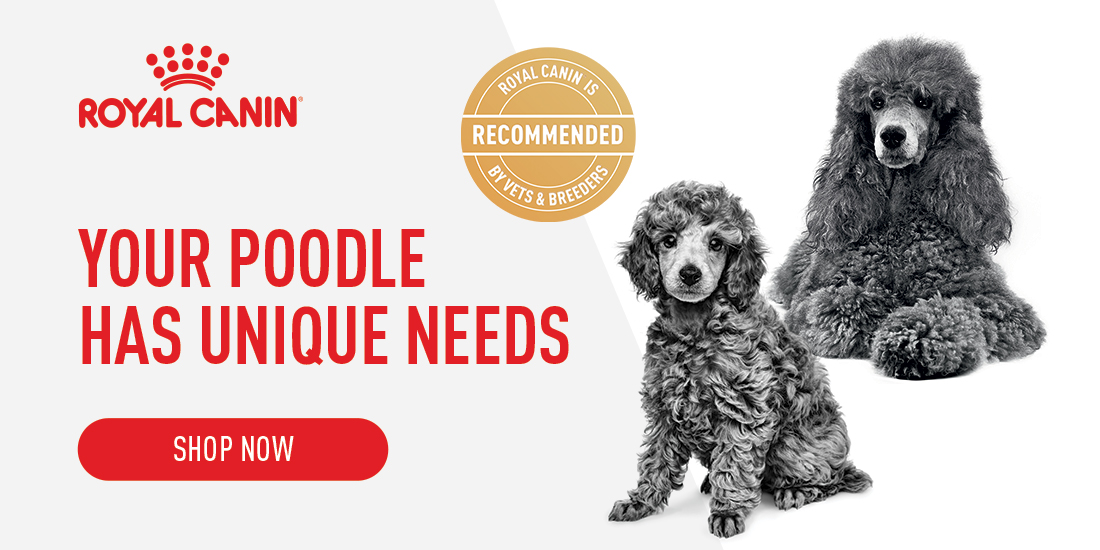Dog Breed
Standard Poodle
Friendliness
Exercise Needs
Health Issues
Barking Tendencies
Grooming Needs
Shedding Level
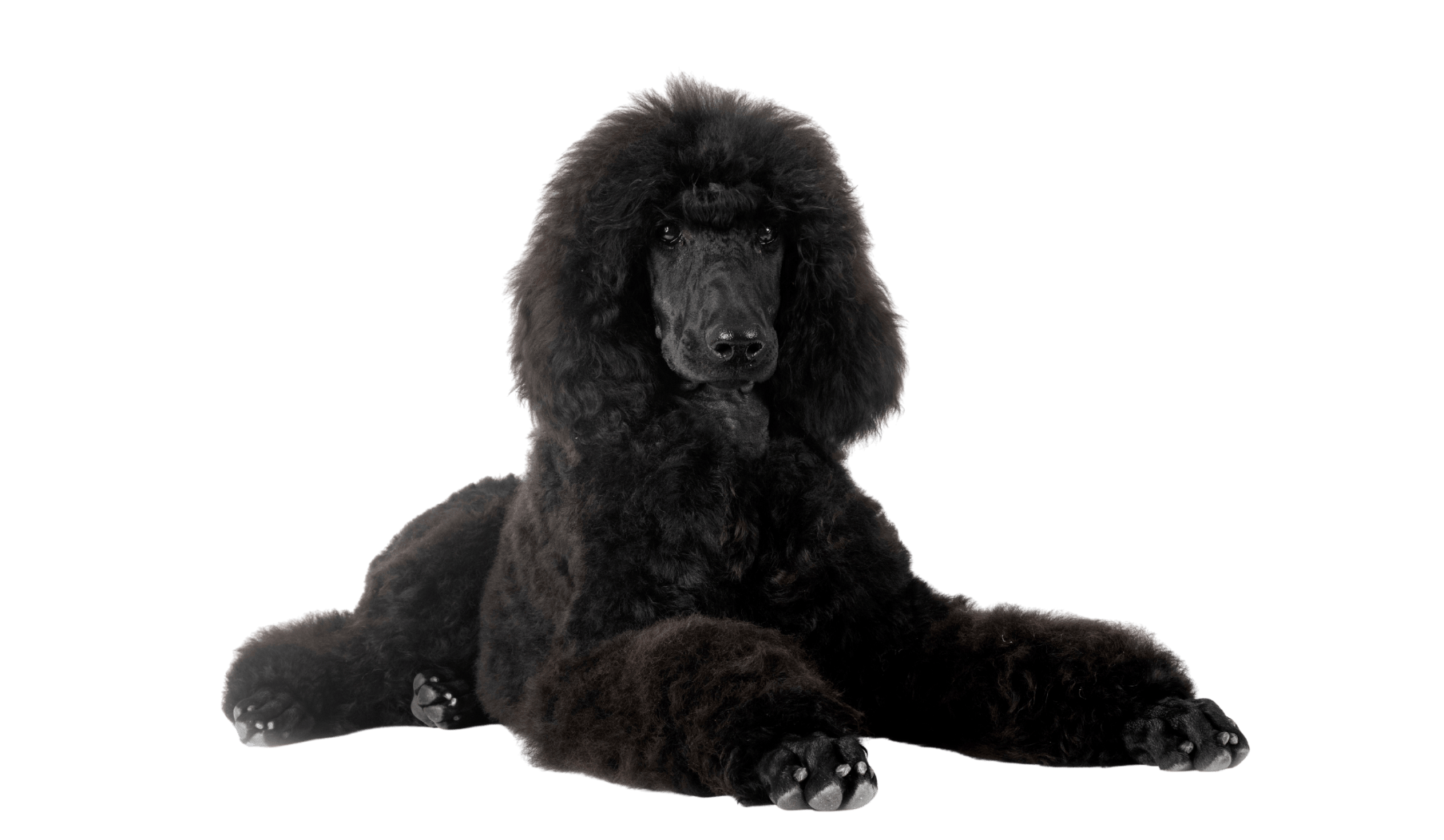

Bright and brilliant
Elegant, intelligent, and endlessly capable, Standard Poodles are known for their sharp minds and versatile nature. They’re highly social dogs that form strong bonds with their families and enjoy being involved in whatever’s going on around them.
Often misunderstood as just a “fancy” breed, Standard Poodles are athletic, playful, and eager to learn. Best suited to owners who enjoy training, activity, and mental engagement, they thrive when given both structure and stimulation.
Caring for your Standard Poodle
Nutrition
Choosing the right food
Every dog is unique. From the small, flat-faced Pug to the obesity-prone Labrador Retriever. ROYAL CANIN® Breed Health Nutrition is tailor-made to address the unique needs of pure breed dogs. These breed specific formulas benefit from the latest ROYAL CANIN® research on the selection of the best protein sources, unique nutrients and tailor-made kibbles.
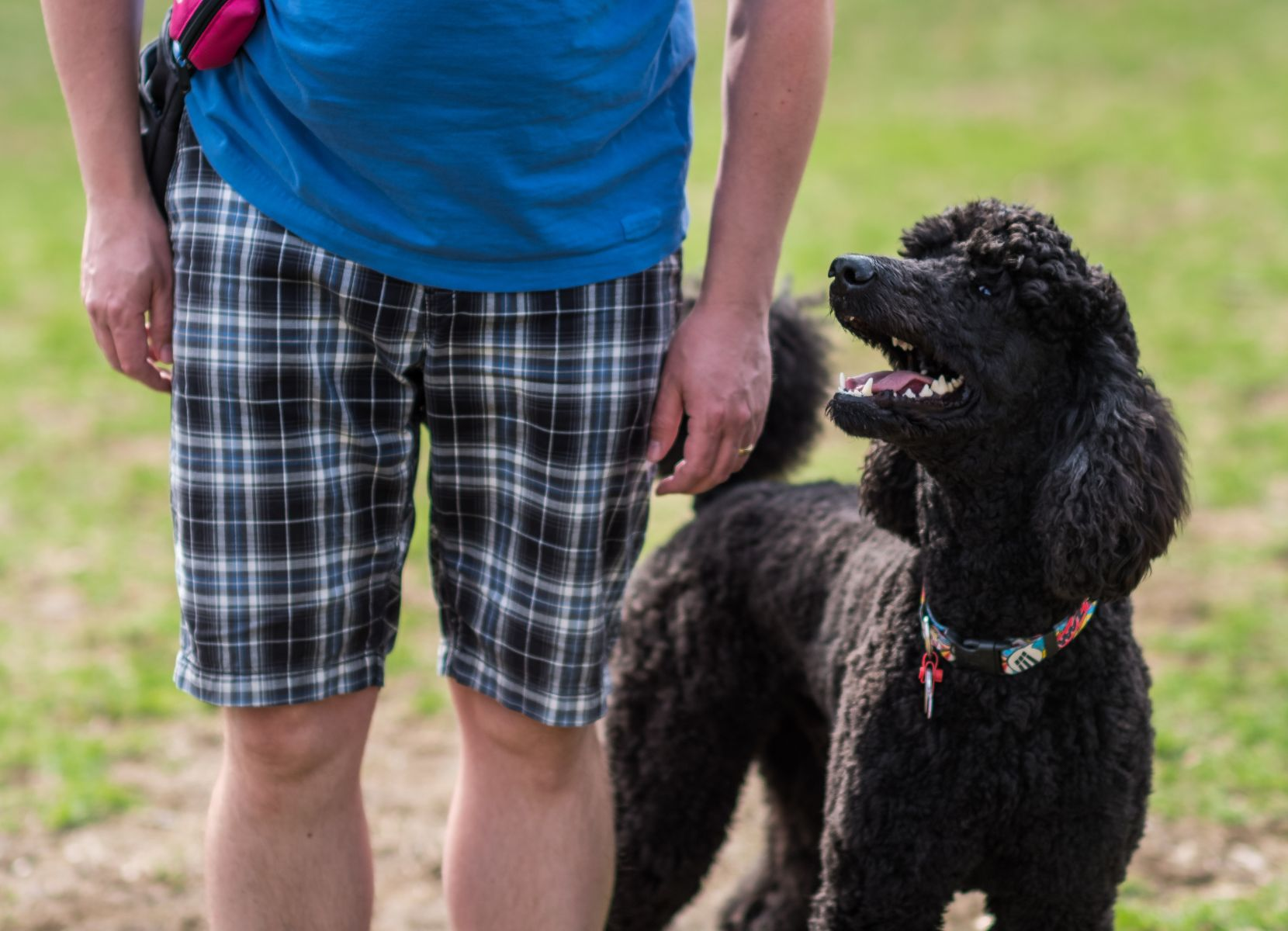
Exercising your dog
Standard Poodles are energetic dogs that need daily physical and mental exercise. Regular walks, active play, and opportunities to run help keep them fit and content.
They enjoy a wide range of activities, from games of fetch to swimming and interactive play. Mixing up exercise helps prevent boredom and keeps them mentally engaged.
Without enough exercise, Poodles can become restless or frustrated. Daily movement and enrichment support calm behaviour at home.
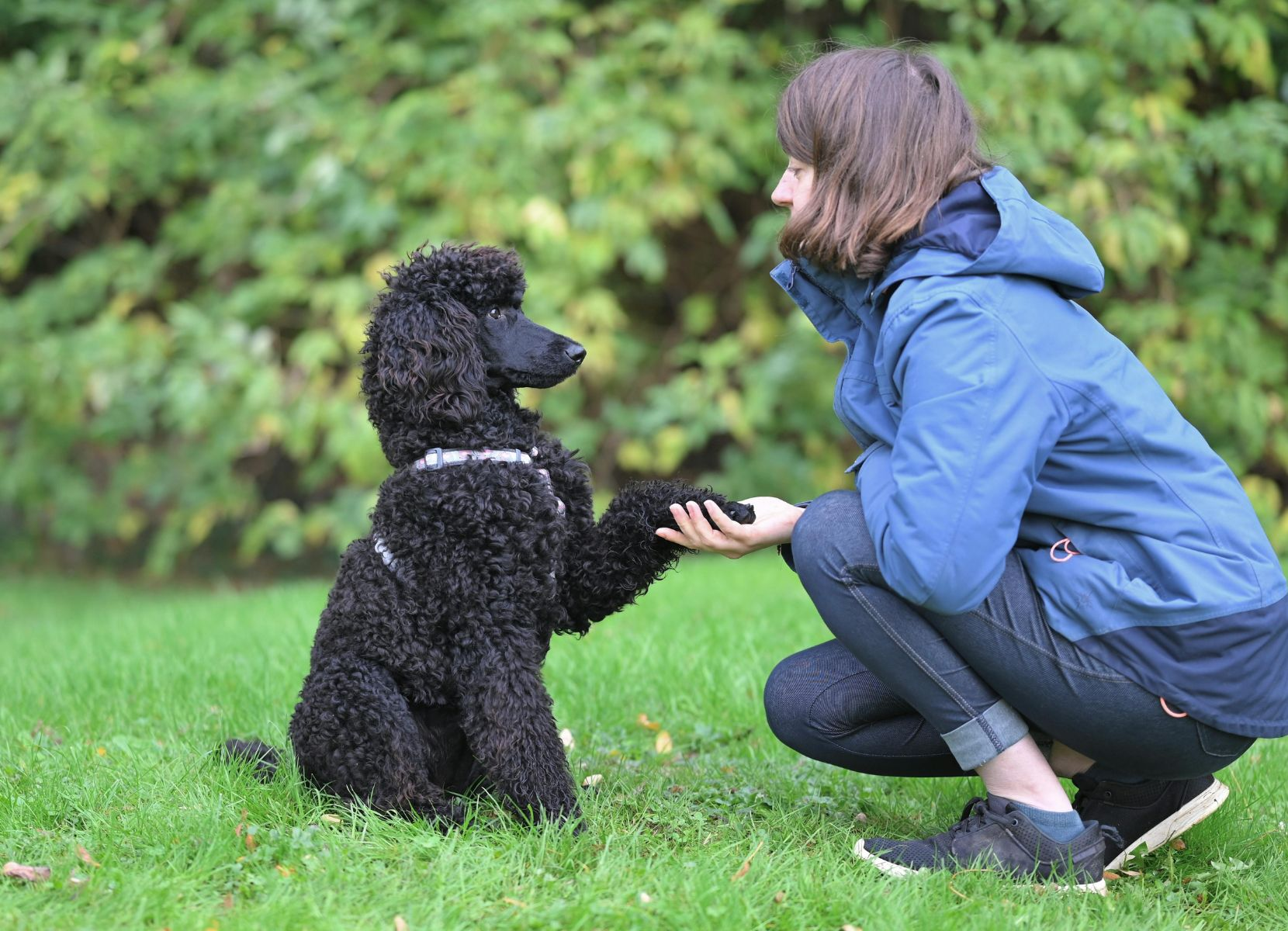
Training your Standard Poodle
Standard Poodles are extremely intelligent and highly trainable. They excel at learning new commands and enjoy having a job to do.
Training works best when it’s positive, consistent, and mentally stimulating. Using rewards, praise, and varied exercises keeps them motivated and focused.
Early training and socialisation help shape a confident, well-mannered adult dog. Many Poodles thrive in obedience, agility, or other dog sports.
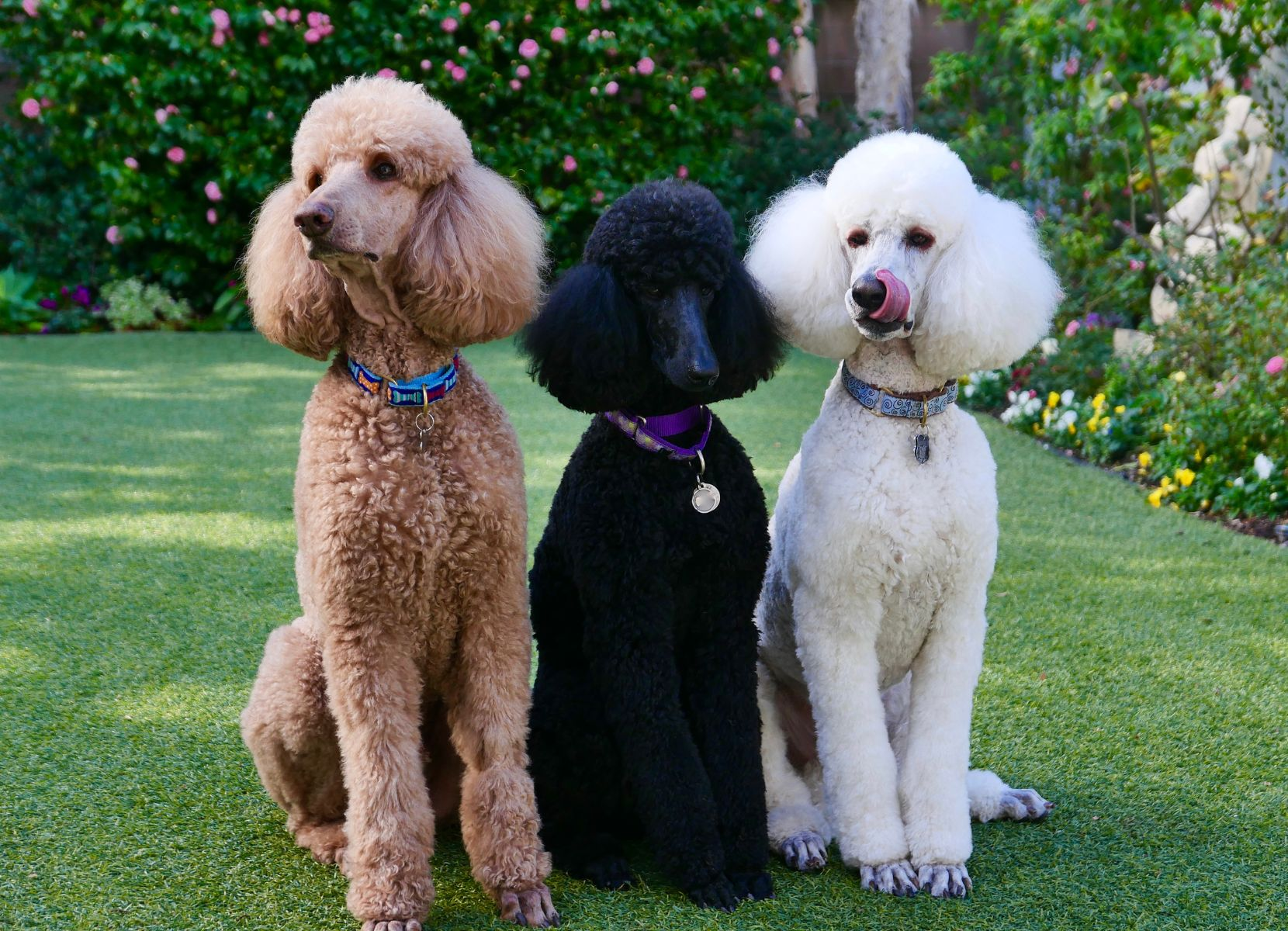
Your dog's health
By recognising health problems in Standard Poodles early you can seek advice and treatment from a veterinarian.
Reduce the risk of health problems by purchasing a puppy from a responsible breeder. Always inspect breeding facilities and breeding dogs, and never buy from a distant online seller.
Health Issues to watch out for:
Hip Dysplasia
Progressive Retinal Atrophy (PRA)
Epilepsy
Gastric Dialtioon-Volvulus (Bloat)
Sebaceous Adenitis (SA)
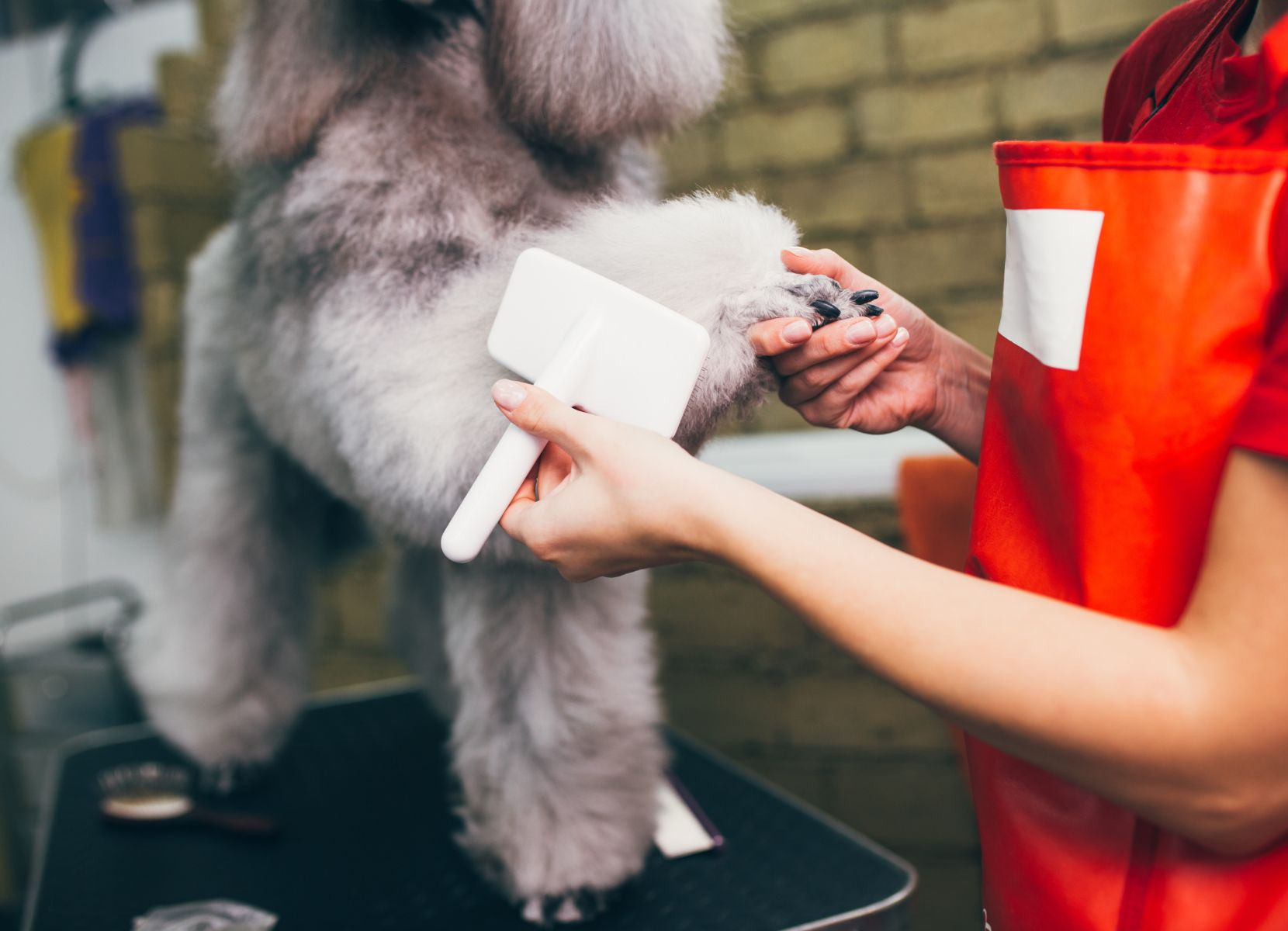
Grooming your dog
Standard Poodles have a dense, curly coat that requires regular grooming. Unlike many breeds, they shed very little, but their coat continues to grow.
Brushing several times a week helps prevent mats and tangles. Professional grooming every few weeks is often needed to keep their coat in good condition.
Regular ear checks, nail trims, and daily teeth brushing are also important parts of their grooming routine and overall health.
Key characteristics of Standard Poodles
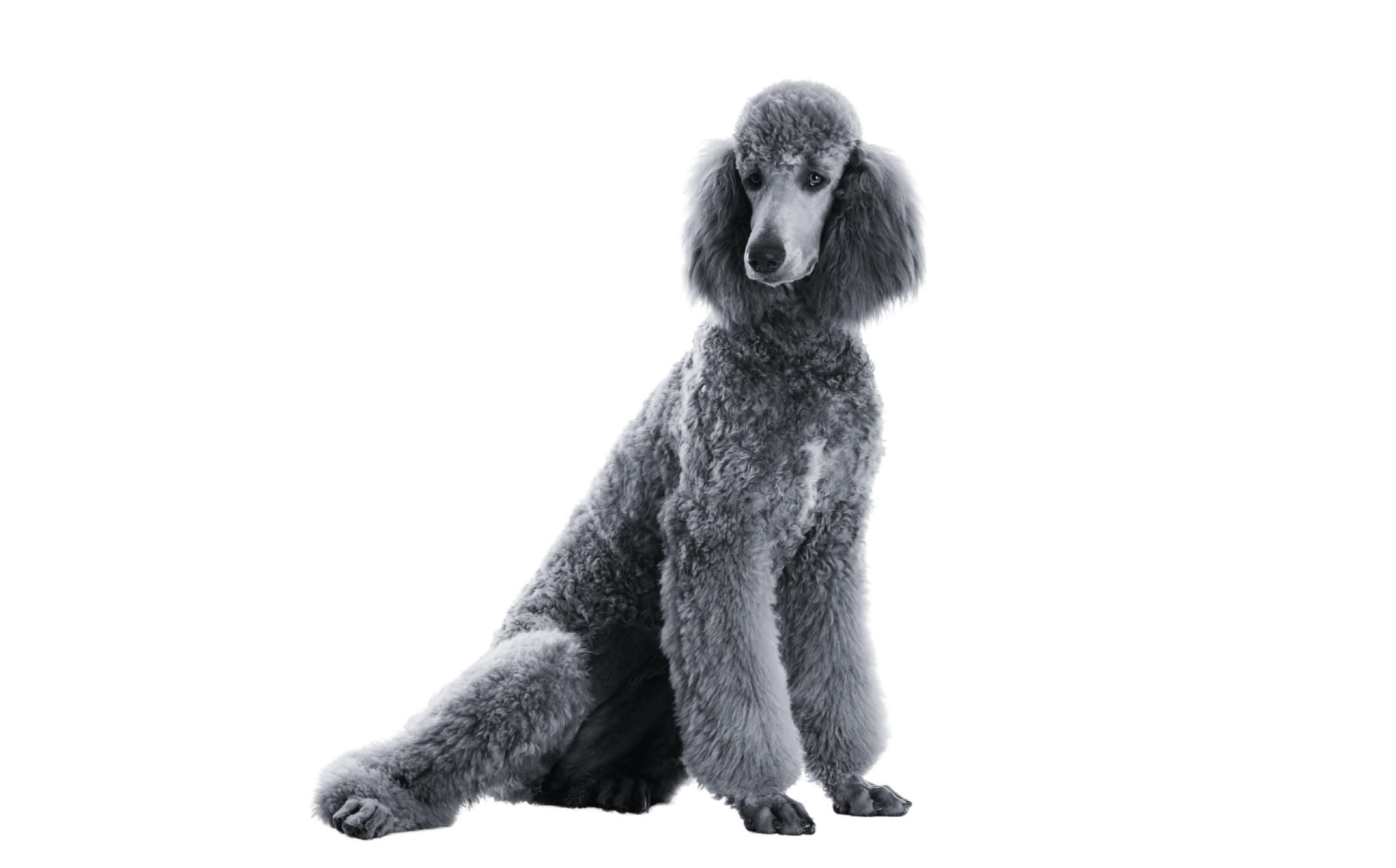
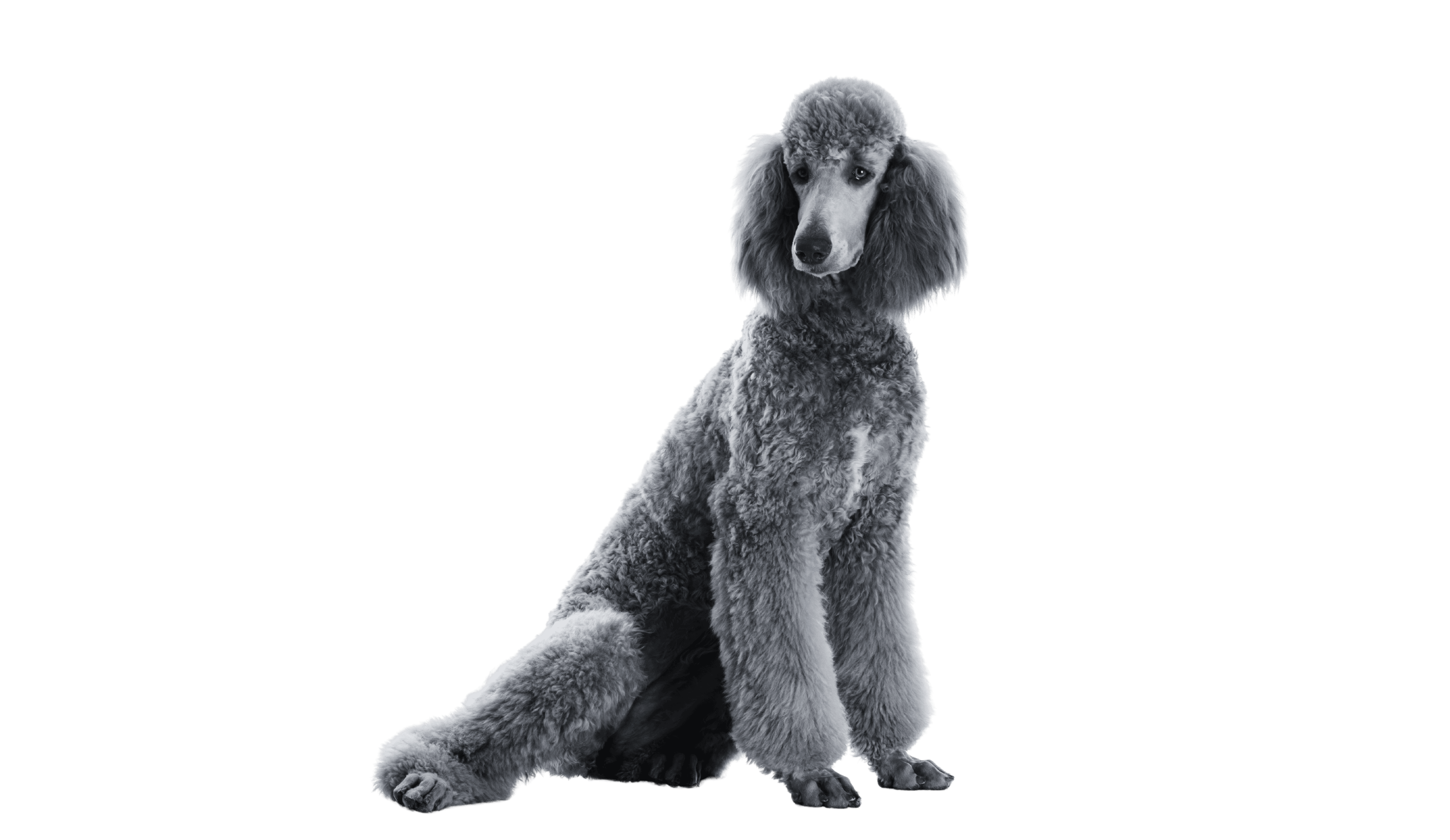
Standard Poodle FAQs
Standard Poodles are known for their intelligence, athleticism, and versatility. These FAQs answer common questions about living with a Standard Poodle, from grooming needs to daily care.
Are Standard Poodles good family dogs?
Yes. They’re friendly, social, and generally great with children when properly trained and socialised.
Do Standard Poodles need a lot of exercise?
Yes. They’re active dogs that benefit from daily physical activity and mental stimulation.
Are Standard Poodles easy to train?
Very. Their intelligence and eagerness to learn make them highly trainable.
Do Standard Poodles shed?
They shed very little, but their coat requires regular grooming to prevent matting.
Are Standard Poodles prone to health issues?
They’re generally healthy, but like all breeds, they can be prone to inherited conditions.
This FAQ section highlights everything you need to know about living with a Standard Poodle. With the right exercise, training, and grooming routine, Standard Poodles make loyal, capable companions for active and engaged households.
